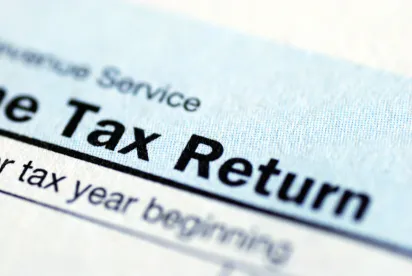In prior advisories, Varnum's tax team explained previous IRS announcements that resulted in the deferral of certain required payments and returns which had original due dates of April 15, 2020 to the extended due date of July 15, 2020. See IRS Notice 2020-17, Notice 2020-18 and Notice 2020-20. These notices, however, resulted in additional questions and concerns regarding the types of returns and payments not specifically addressed.
On April 9, 2020 the IRS issued Notice 2020-23, which further expands relief noted above to additional returns, tax payments and other actions. As a result, the extensions generally now apply to all taxpayers that have a filing or payment deadline falling on or after April 1, 2020 and before July 15, 2020. Individuals, trusts, estates, corporations and other non-corporate tax filers qualify for the extension. This also applies to any schedules, returns and other forms that are filed as attachments to any of the forms covered by this relief.
The relief is automatic, and no election or other filing is required. However, taxpayers who need additional time to file may choose to file the appropriate form by July 15, 2020 to obtain an extension to file their return, but the extension date may not go beyond the original statutory or regulatory extension date. Notably, filing an extension of time to file a return does not extend the due date for a tax payment beyond July 15, 2020.
The following is a summary of the most important aspects of Notice 2020-23.
Tax Returns and Payments
Tax returns, and related tax payments, related to the following are not due before July 15, 2020:
-
Individuals: IRS Form 1040 and its variants filed by seniors (1040-SR), nonresident aliens (1040-NR and 1040-NR-EZ), self-employed individuals in the U.S. and Puerto Rico (1040-SS and 1040-PR, respectively).
-
Corporations: IRS Form 1120 and its variants filed by S corporations (1120-S), cooperative associates (1120-C), foreign corporations (1120-F), foreign sales corporations (1120-FSC), homeowners associations (1120-H), life insurance companies (1120-L), nuclear decommissioning funds (1120-ND), property and casualty insurance companies (1120-PC), political organizations (1120-POL), real estate investment trusts (1120-REIT), regulated investment trusts companies (1120-RIC), and settlement funds (1120-SF).
-
Partnerships: IRS Form 1065 and IRS form 1066 for U.S. real estate mortgage conduits (REMICs).
-
Exempt Organizations: IRS Form 990-T
-
Estates and Trusts:
-
IRS Form 1041 and its variants for electing Alaska native settlement trusts (1041-N) and qualified funeral trusts (1041-QFT).
-
IRS Form 706 (including a filing pursuant to Rev. Proc. 2017-34 to elect portability) and its variants for nonresident alien decedents (706-NA), additional estate tax on certain qualified real property (706-A), qualified domestic trusts (706-QDT), generation-skipping transfers resulting from trust terminations (706-GS(T)), generation-skipping transfers resulting from trust distributions (706-GS(D) and 706-GS(D-1)).
-
IRS Form 709
-
IRS Form 8971, reporting property acquired from an decedent.
-
-
Private Foundations: IRS Form 990-PF and IRS Form 4720 related to certain excise taxes.
-
Quarterly Estimated Taxes:
-
IRS Form 1040-ES and its variants for nonresident aliens (1040-ES (NR)) and self-employed individuals in Puerto Rico (1040-ES (PR))
-
IRS Form 1120-W for corporations
-
IRS Form 990-W for exempt organizations
-
IRS Form 1041-ES for estates and trusts
-
Time-Sensitive Actions
All of the following actions which must be performed on or after April 1, 2020 and before July 15, 2020 are not due before July 15, 2020:
-
Filing a petition with the tax court or for review of a decision rendered by the tax court;
-
Filing a claim for credit or refund of any tax;
-
Bringing suit upon a claim for credit or refund of any tax;
-
Time-sensitive acts that may be postponed time for taxpayers affected by a federally-declared disaster, a terroristic or military action, or individuals serving in a combat zone described in IRC 7508, IRC §7508A, and Rev. Proc. 2018-58; and
-
Electing to defer gain invested within 180 days into a Qualified Opportunity Zone.
The relief described herein is limited to the relief explicitly provided in these notices and does not apply with respect to any other type of federal tax or federal tax return, or any other time-sensitive act.




 />i
/>i

